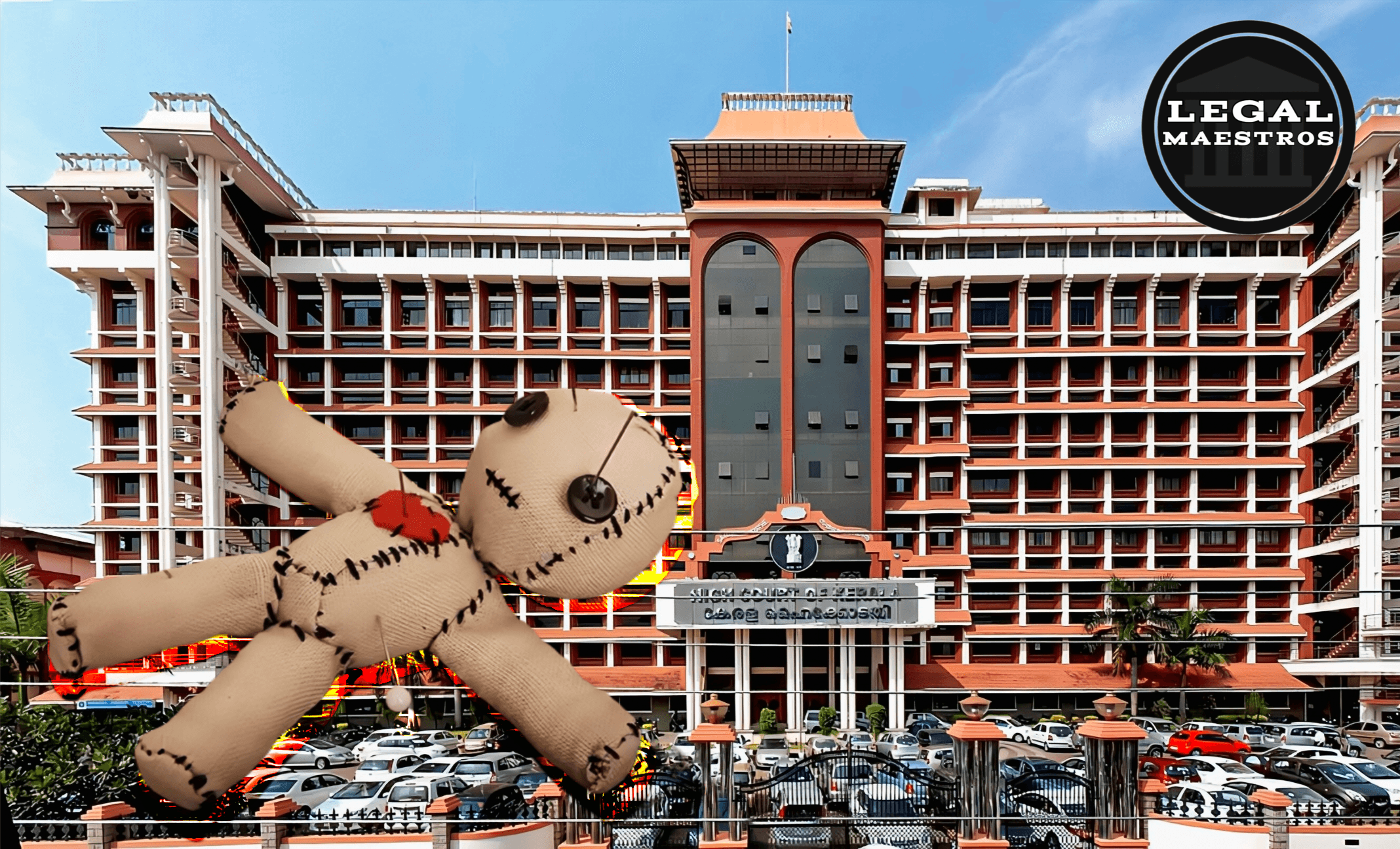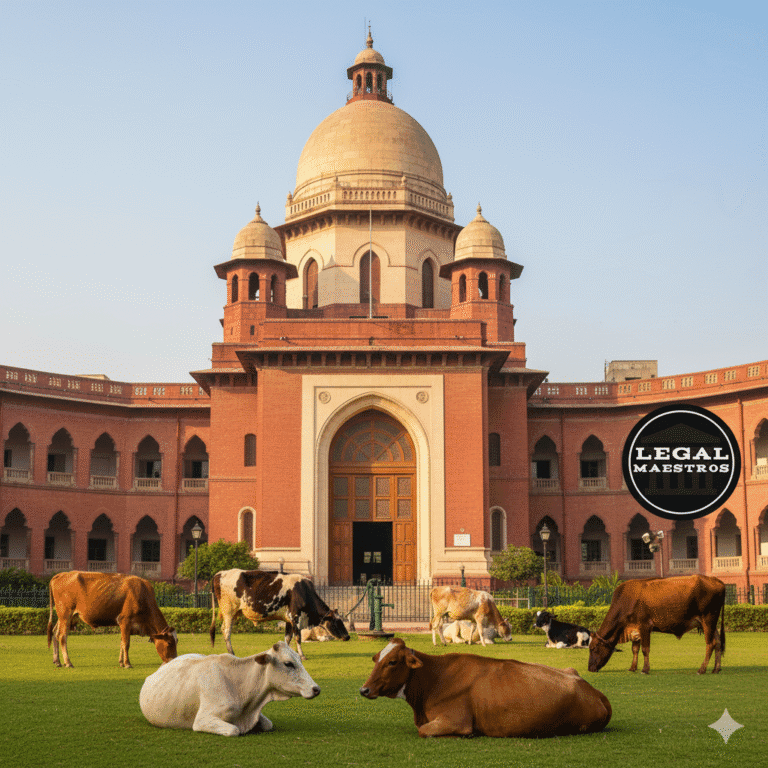
It is a major legal effort, and in a major legal action, Kerala Yukthi Vadi Sanghom, a cultural and rationalist body, has really taken a leap by approaching a writ petition in the Kerala High Court. The petition is to get rid of the traditions of black magic, sorcery, and other rituals of superstition, which still haunt contemporary Indian society. The petition also points out the dire need to come up with a law against inhumane and evil practices being carried out under the pretext of traditional belief systems.
This was argued before a bench of Chief Justice Nitin Jamdar and Justice Basant Balaji. It carries the rising fear of civil society about the exploitation of superstition, which most of the time attracts violence, exploitation, and even death.
The petitioner: Kerala Yukthi Vadi Sanghom
The Kerala Yukthi Vadi Sanghom is a popular rationalist group in Thrissur, in Kerala, whose petitioner is the Kerala Yukthi Vadi Sanghom. The organization, through its General Secretary, T.K. Saktheedharan, has been critical of black magic and human sacrifice. The organization has been trumpeting the importance of science, logic, and reasoning in the sphere of life, and now the organization is urging the judiciary to focus attention on loopholes in the legal system concerning superstitious and harmful practices.
For any queries or to publish an article or post or advertisement on our platform, do call at +91 6377460764 or email us at contact@legalmaestros.com.
Petition Background and FOUNDATION
A note of a detailed report published by the Law Reform Commission of Kerala in 2019 is drawn up in the petition. The Commission under the chairmanship of Justice K.T. Thomas proposed the enactment of a bill known as, The Kerala Prevention of Eradication of inhuman evil practices, Sorcery, and Black Magic Bill, 2019. The State Government is yet to take practical action to pass this legislation even after submitting this report.
The petition stresses the point that a similar statute has already been passed in Maharashtra and in Karnataka. They enacted these legislations to help contain activities that not only subject human beings to oppressive acts but also lead to other acts like murder and human sacrifice.
Important Requests Proposed by the Petitioner
The petitioner has made multiple prayers before the Court. These include:
For any queries or to publish an article or post or advertisement on our platform, do call at +91 6377460764 or email us at contact@legalmaestros.com.
- A recommendation or judicial advice to the State and Central governments to enact a law similar to the ones in Maharashtra and Karnataka.
- A writ of mandamus directing the Kerala Government to consider the Law Reform Commission’s 2019 report and take action toward passing the proposed bill.
- Formation of a special team to investigate or reinvestigate missing person cases over the last fifty years in the context of suspected black magic-related crimes.
- A declaration that human sacrifice and related inhuman acts are illegal and should be punishable under the law.
- Recognition of these acts as cognizable and non-bailable offenses.
- Instructions to police to search and shut down black magic and witchcraft centers.
- Ban the movies and web shows that encourage superstition unless they bear positive social or artistic messages.
- Prescription of the Drugs and Magic Remedies (Objectionable Advertisements) Act, 1954 which outlaws misleading advertising.
- A ban on online advertisements promoting books related to black magic.
The Importance of the Law Reform Commission Report
One of the major aspects of this petition is its reliance on the recommendations made by the Law Reform Commission in 2019. Some of the provisions to act as the legal backbone that could be provided by the Commission are outlined below. These proposals were based on the constitutional and common good.
The report emphasized that people had to guard themselves against fake religious practitioners who preach out of fear and ignorance. Even though the recommendations are all candid and profound, the Government of Kerala has yet to move an inch to translate this proposal into law.
Judicial Response and Proceedings
On 18th October 2022, the matter was first heard by the court. During this session, the State Attorney submitted that the Kerala Government was considering legislation on this subject. Having heard this statement by the Court, the concerned Senior Secretary was requested to file an affidavit upon the statement of the official position of the government.
For any queries or to publish an article or post or advertisement on our platform, do call at +91 6377460764 or email us at contact@legalmaestros.com.
When the matter stood listed on 3 rd June 2025, the case was asked an update and the case was adjourned to 24 th June 2025. This move by the Court reflects that although it is not directing the State legislation, it is definitely pressurizing the 3rd party.
Broader Implications for Society
The situation mentioned in this case is a very crucial social problem. India is one nation in which religion and the system of belief are highly involved in day-to-day living. Though the freedom of practicing religion is guaranteed by the constitution, practices that are violent, deceptive, and harmless are not.
All these also translate to the concerns of the petitioner because many tragedies have occurred, recorded cases of people, especially women and children, who were injured or even killed in the name of rituals. Such activities are conducted secretly, and they are difficult to track down and prevent unless there is proper legal support.
For any queries or to publish an article or post or advertisement on our platform, do call at +91 6377460764 or email us at contact@legalmaestros.com.
Moreover, the encouragement of superstitious ideas in movies, television series, and the Net makes superstitious beliefs a favorable area for such destructive acts to prevail. The petitioner is not unfair in his endeavor to prevent the promotion of beliefs that are irrational and dangerous in nature, as this seems to promote culture and art.
The Role of the Judiciary
In this petition, the High Court has been asked not to legislate but to instruct the executive and legislature through judicial advice and pronouncements. This way the task of the Court turns into that of a catalyst, forcing the duty to act by the relevant authorities to perform the constitutional obligations and stand for the protection of the people at large.
This role of the judiciary becomes even more significant where the legislature is sluggish in action. The petitioner is not seeking the court to make a law but to inform the legislators of their role in society.
For any queries or to publish an article or post or advertisement on our platform, do call at +91 6377460764 or email us at contact@legalmaestros.com.
Challenges Ahead
Coming up with laws on black magic and superstition is bound to receive opposition on many fronts. Argues may say that such legislation is a violation of religious liberty. The main difference, however, as far as this case is concerned, is that between belief and practice. Although belief is personal and privileged, any activity that raises harm and takes advantage of powerless individuals is unjustifiable.
Enforcement will also pose difficulties. Sorcery or black magic may be hard to spot and denote because there is no evidence of such acts, and it remains a secret. “Any law enacted will have to be effective on the ground, and this can only be done through creating public awareness, training police officials, and the role of civil society in supporting the process.”
On the Way to Logical and Human Society
The petition submitted by Kerala Yukthi Vadi Sanghom is not merely a legal document; it is actually an appeal. It reminds us that though India is marching ahead in science and technology as well as in education, there are dark clouds of superstition that remain. These have to be dealt with by legal, social, and educational means.
For any queries or to publish an article or post or advertisement on our platform, do call at +91 6377460764 or email us at contact@legalmaestros.com.
The high court of Kerala has also taken an initiative in this matter. When the state government reacts positively, Kerala can be an example to the other parts of the country in doing away with superstitious activities that happen to be perilous. The present case can become one of the steps towards the fight with irrational and destructive traditions in India.




![Research Assistantship @ Sahibnoor Singh Sindhu, [Remote; Stipend of Rs. 7.5k; Dec 2025 & Jan 2026]: Apply by Nov 14, 2025!](https://legalmaestros.com/wp-content/uploads/2025/11/Gemini_Generated_Image_s0k4u6s0k4u6s0k4-768x707.png)
![Karanjawala & Co Hiring Freshers for Legal Counsel [Immediate Joining; Full Time Position in Delhi]: Apply Now!](https://legalmaestros.com/wp-content/uploads/2025/11/Gemini_Generated_Image_52f8mg52f8mg52f8-768x711.png)
![Part-Time Legal Associate / Legal Intern @ Juris at Work [Remote]: Apply Now!](https://legalmaestros.com/wp-content/uploads/2025/11/ChatGPT-Image-Nov-12-2025-08_08_41-PM-768x768.png)
![JOB POST: Legal Content Manager at Lawctopus [3-7 Years PQE; Salary Upto Rs. 70k; Remote]: Rolling Applications!](https://legalmaestros.com/wp-content/uploads/2025/11/ChatGPT-Image-Nov-12-2025-08_01_56-PM-768x768.png)